One of the biggest concerns of the firms I advise isn’t about harsh external realities, but internal dynamics - the motivation of their people. It’s a complex topic and I write to make sense of things. This 3-part series explores the nature of work and ambition today - taking a global view of it to marry what’s happening in culture with what’s happening in our heads:
Part 3: Another Kind Of Happiness
You deserve to sit.
Brian Jordan Alvarez is an elder millennial creator who puts on personas - he’s great at it. I’ve been a fan of Brian for a few years now - the kind of creator I wish was a bigger deal. And in September 2023, he became exactly that internet big deal. One of his personas is called T.J. Mack - a bug-eyed popstar with a spanish-adjacent accent who loves to sing, shop for deals and references his wife all the time. made up a song - an ode to…sitting down. Here’s the song, mixed by another creator Josh Mac:
The song. took. off. Remixes. Parodies. The whole production that entails anything that is “big on the internet.”
My master’s thesis was on why internet memes spread (yes, it remains the coolest thing I’ve worked on, and no, I couldn’t really predict the scale it would reach in 2024). Memes are windows into our collective psyche. They give visual language to our internal monologue. In this case, the song turned the deep-seated-yearning to hit pause on life into a fun, uplifting number. We shared it because we felt the truth of the song in us. We were (and still are) exhausted. And we just needed to sit down.
A few months later, Gallup, a global research firm, would confirm this. Their State of the Global Workplace Report just dropped this nugget on stress:
ALMOST HALF the employees said they experienced a lot of stress the previous day. The two places where this stress is the highest (a whopping 52%) - USA and East Asia (primarily Japan, S. Korea and China). It also confirmed what we’ve seen in the headlines since the pandemic started - quiet quitting and disengaged employees. Not only are we stressed, at least 1 in 5 of us are angry. South Asians aren’t the most stressed, but they’re definitely the angriest.
Last week, Oliver Bach at the Financial Times traced the rise of the Chief Happiness Officer role across many companies - and how beyond the cheekiness of the title, it’s really hard to get employee engagement up. Gallup just put a number to the need for this - low engagement costs the global economy $8.8 trillion - 9% of global GDP. Companies are definitely taking note of the low engagement = low productivity = low profits cycle, and the CHO (I know, lulz!) title is one example of this.
But I doubt that this will fix what seems like a chronic problem. The things these committees and wellness teams fix are superficial. The root of exhaustion, and hence disengagement, is much deeper - more on that in a bit.
A tiktok star and a financial times journalist have walked into a bar…but…there’s no punchline, everyone is just tired. 😞
Everyone Everywhere Tired All The Time
While TJ Mack was crooning about sitting in LA, over here in Asia culture reflected the same exhaustion. “Johnny Keep Walking!”, a low-budget, poorly promoted movie went on to become a massive hit in China (raked up - especially among the youth. It’s an unforgiving satire of aimless bureaucracy, incompetent bosses, and the tradition of corporate off-sites and retreat galas at Chinese companies. Just like the song about sitting, Chinese white-collar workers saw themselves in the movie. Culture, as big as a movie and as small as a meme, provides catharsis.


Over in Vietnam - a country that is having a great moment under the sun - you’d expect a lot more enthusiasm and optimism in the white collar sectors. I expected them to feel the same way India’s burgeoning IT sector felt in the early 2000s. Yet that’s not happening. The prospect of immense growth casts a darker shadow. Vietnam’s youth joined the Chinese trend of tai ping or ‘lying flat’ - as in ‘lie flat and get the beatings over with’ . They are putting work second.
Sedating with wellness
Just like any human crises, this exhaustion and disengagement too acts as oxen yoked to capitalism’s plow. Not only are entire cottage industries cropping up to in the form of corporate well-being programs, once you step out of the office and into a local bookstore and you’ll see plenty of panacea. The latest HBR magazine published a special issue on exactly this.
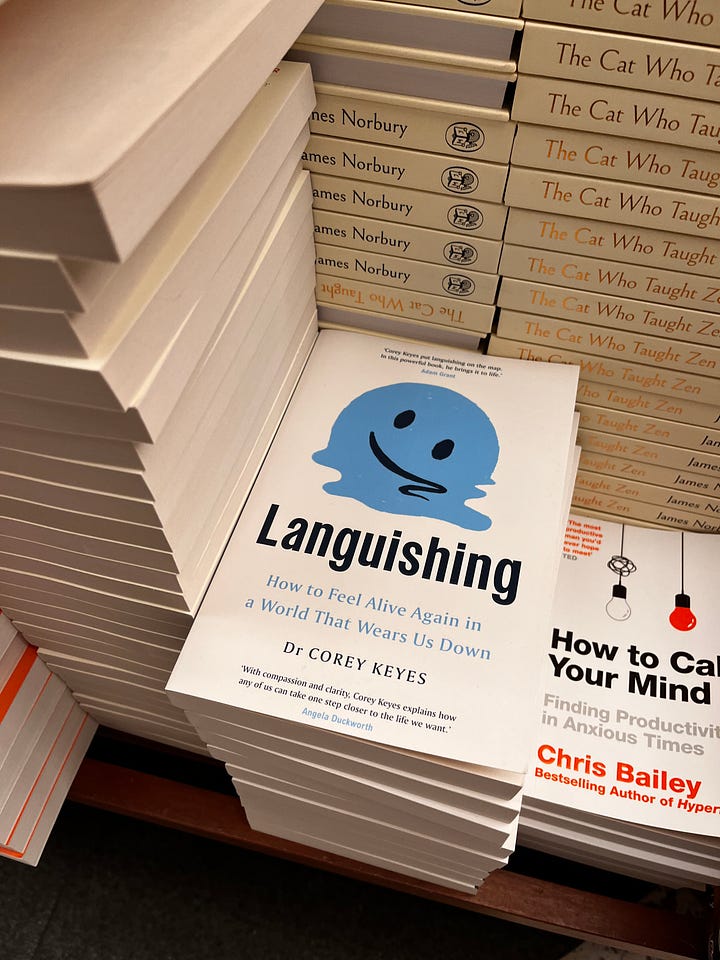
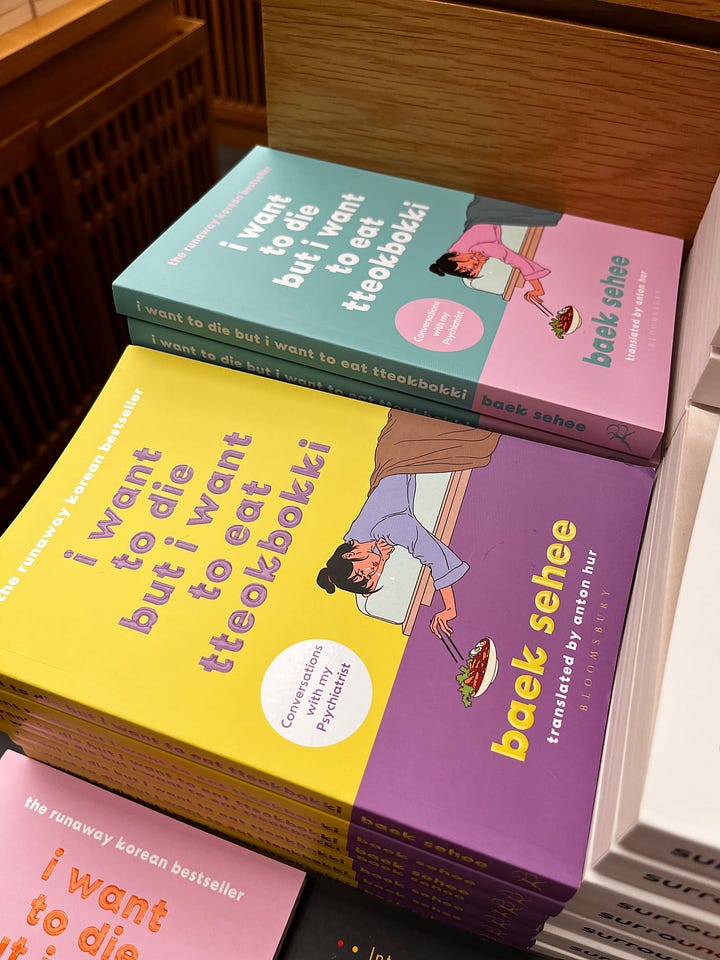
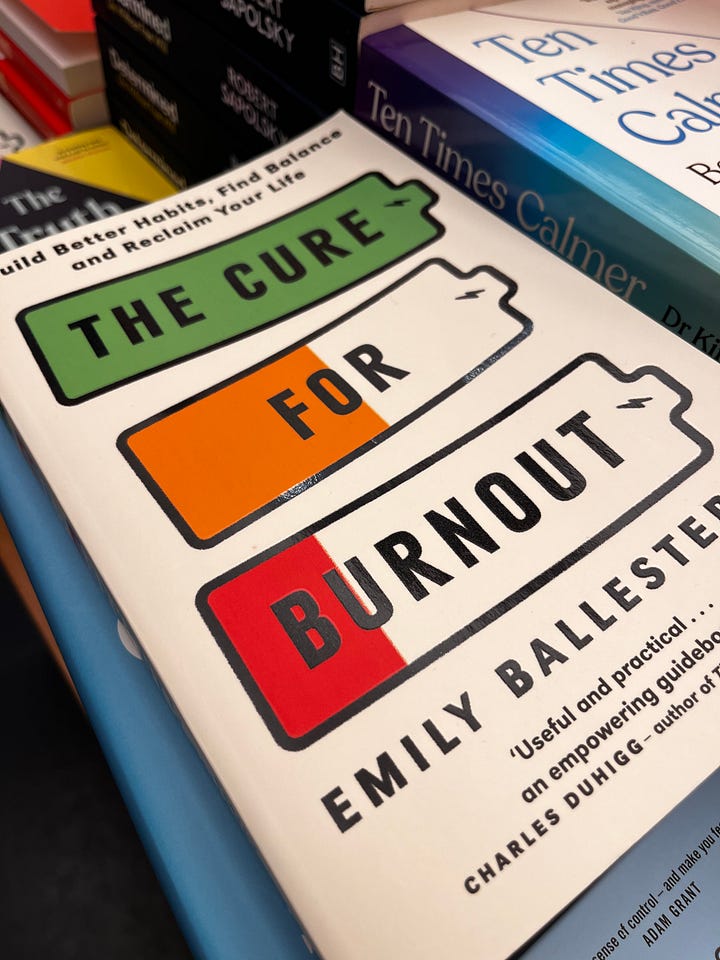
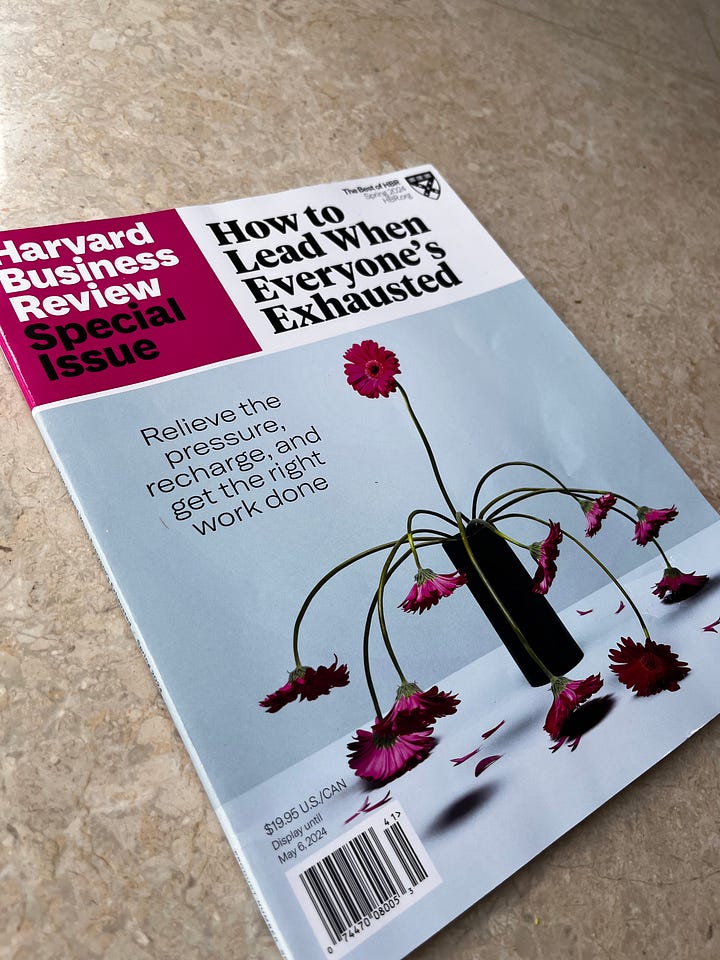
Oh and while everyone is tired, women are more tired than others. In the Gallup report, women report higher levels of stress and anger than men around the globe. In fact the tiredness is compounded by the expectations outside of work on them. As a woman, you aren’t even allowed to be stressed, coz you need to look a certain way. But worry not, the wellness-industrial-complex is here to the rescue:
“We’re sedating women with consumerist self-care. You’re not stressed because you’re not doing enough yoga or taking enough bubble baths. There are other, bigger reasons why you feel stressed out. Maybe it’s because you don’t have maternity benefits. Maybe it’s because your boss is emailing you after 6pm. Maybe it’s because your partner doesn’t help you with the workload at home. These are the things that get shoved under the rug and instead you’re told that you yourself, alone, have to take care of the issues.”
- Rina Raphael, journalist and author of The Gospel of Wellness
A blurring, a disconnect and a dissonance
We can’t life-hack our way to happiness. Getting to the other side of this exhaustion will require that we question deeper roots of what work means to us. And we need to do this for our own benefit, even if it didn’t maximize shareholder value 😂.
The first reason is pandemic wrought - the blurring of time. Work time and home time became just time that can be monetized. People complained about meetings way back in 2018. Then the pandemic wove digital communication into the fabric of our lives - zoom fatigue, emails, Slack pings, WeChats, Whatsapps, texts - they were always around, but pandemic broke the mental levees. And what started in 2020 shows no signs of ending.
Notice how it’s never “work-leisure balance” but always “work-life”? But isn’t work part of life? The language we use encodes the realities we allow and approve. Once work and home blurred into each other, when we tried to untangle the two after the pandemic, we realized one of these is really not like the other. So why would you ‘balance’ two things that were never meant to be equals anyway? You’ll realize that we have built up false distinctions - work and leisure, professional and personal, weekdays and weekends. We perpetuate these distinctions to compartmentalize, but what they really do is divide something that was never meant to be fragmented.
The second insight I gained was that they don’t see the point of it all. There is a disconnect between what they do and what the company achieves. Chances are, you’ve seen this play out in your workday. Meetings after meetings. Meetings before meetings. Meetings about meetings. A friend of mine shared how they barely had time to have lunch that week. Every year we resolve to reduce meeting load but they gnaw their way back onto our calendars and hence our lives - embedding themselves deep into our bone structure, like some indestructible parasite. Information work thrives on collaboration and cross-pollination of ideas, but if you fail to connect individual actions to business purpose, the engagement gap will widen. The more pressure on profitability, the more they’ll demand this, the more they demand, the harder it will be for employees to disconnect - leading back to low engagement. The ouroboros of exhaustion continues.
Over in China, the combination of 996 (9am to 9pm, 6 days a week) culture and immense pressure that economic realities exerted on big companies - the meme greeting that has reigned since 2020 was“Good Morning Laborer”
In 2020, “Good Morning, Laborer” became the new, ironic greeting among China’s tech workers, after the phrase went viral on social media platform Bilibili. The term “laborer” or dagongren was originally used to describe migrant workers who had moved to the city to work in factories and on construction sites. But in recent years, it has become one of the many words that white-collar employees have appropriated from blue-collar work to complain about their jobs: tedious, repetitive, and low-paying. Other phrases include ban zhuan (搬砖) or “moving bricks,” shechu (社畜) or “corporate cattle,” and jiabangou, meaning “overtime dog.”
The final reason for our collective discontent is the dissonance between what we see in the economy and our lives. I am not here to debate if there is an actual connection in any of these examples - it’s about the perception that drives emotions of disengagement. In Vietnam, a booming economy didn’t translate into paychecks. The country’s economic gains haven’t been felt among the young - and housing has gotten worse. How is it that the S&P in the West and Nikkei in the East have been smashing records but we’re yet to contain the layoff contagion? When Google laid off people last year, the biggest head-scratcher for my peers was ‘how could a company sitting on $100B in cash need layoffs?’
It didn’t matter what the (however logical) explanation was, it made them change how they felt about their work.
In part 2, I’ll dig into what all of this is doing to ambition. And part 3, we’ll see how people are finding their way out of these doldrums. Meanwhile, I’d love to hear what you have noticed in culture - comments welcome.








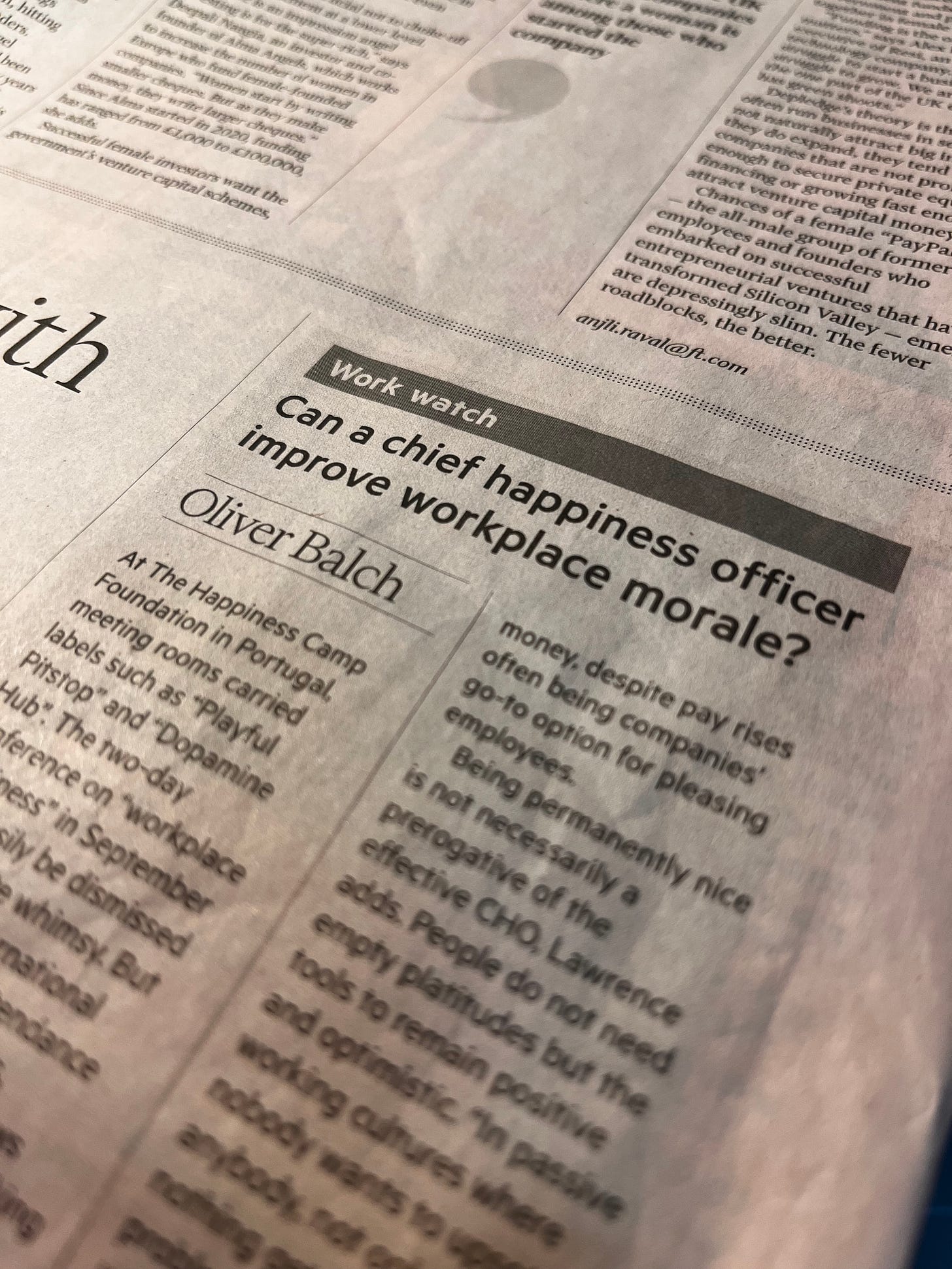


As usual, I greatly appreciate the ideas and examples you share. Curious to see where this series goes and if there’s anything about how some of our dissatisfaction stems from the comparison game as we view social media highlights from our loose connections and parasocial relationships. Keep it coming!